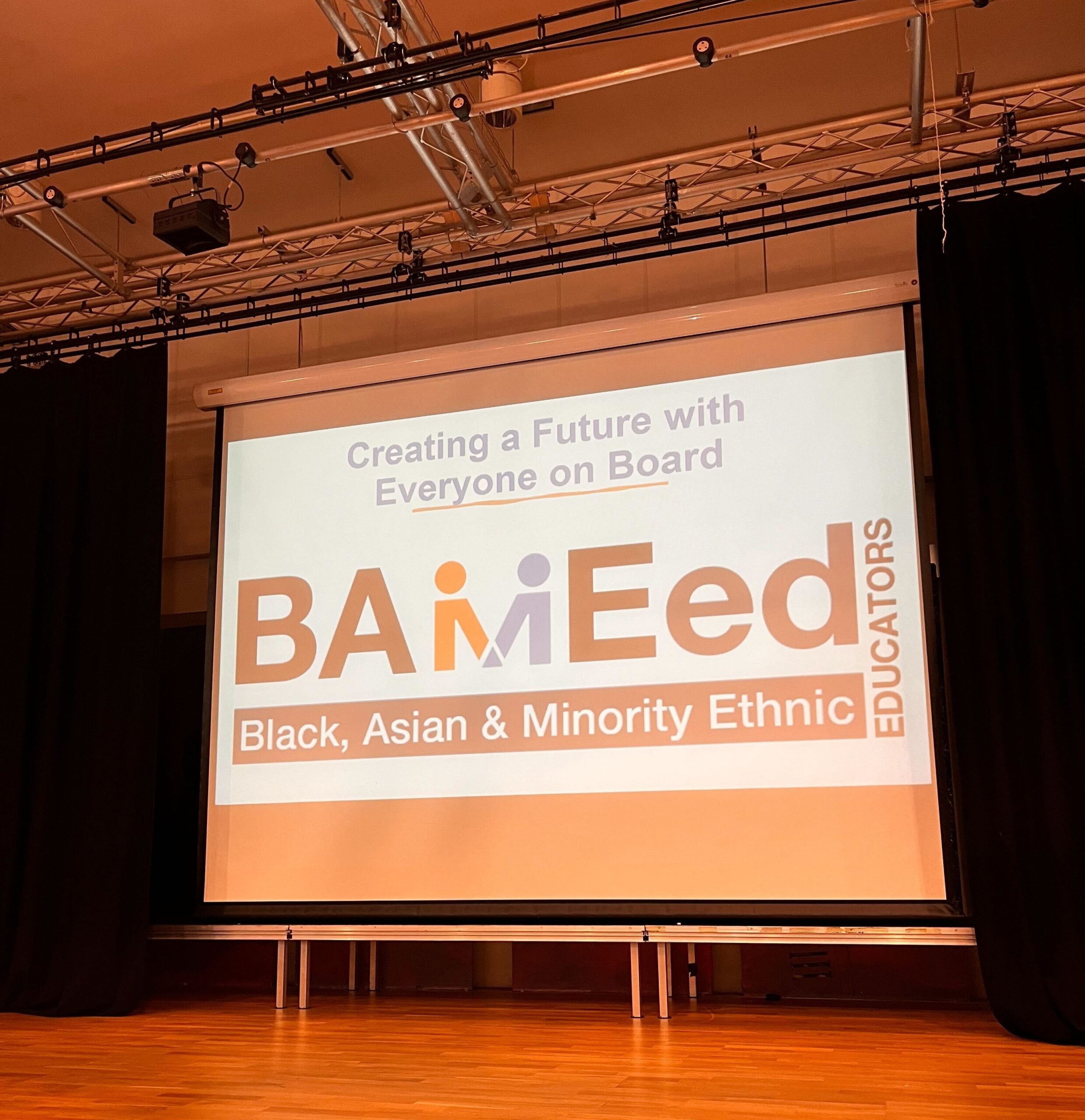The BAMEed event, Creating the future with everyone on board, in January brought together educators, publishers, data scientists and researchers to share knowledge on equality and inclusion in education and the workplace. The event saw attendees pledging to bring about real change. We share what we learnt about the research, initiatives and individuals fostering ethnic diversity and inclusion in education.
1. Initiatives working to encourage inclusion
We know that conducting and sharing research is vital for an innovative and effective education system. That’s why, at Oriel square, our understanding of the needs of different stakeholders in the system grounds all our work. The event showcased how meaningful change can be made through research initiatives in the education sphere.
Here are some of the initiatives that caught our attention:
Lit in Colour
The Lit in Colour initiative, a partnership between the Runnymede Trust, Penguin Random House and other publishing houses and exam boards, explores how to support schools in making the English Literature curriculum more inclusive and widening students’ access to Global Majority writers.
As part of their commitment to the Lit in Colour initiative, Bloomsbury commissioned Oriel Square to research and produce a report examining the diversity of drama texts studied at GCSE and A Level. The report offers recommendations for increasing the number of plays by Global Majority writers used in schools.
Visualise: Race and Inclusion in Art Education
The Runnymede Trust is also working with the Freelands Foundation to deliver the first major research commission into race and inclusion in art education. The research looks at the current landscape of visual arts education and the experiences and representation of people of colour in the UK visual arts sector.
‘Children in UK schools (of whom 31% were “minority ethnic”) were introduced to visual art by teachers who were 94% white.’
In light of the DfE’s finding that ‘children in UK schools (of whom 31% were “minority ethnic”) were introduced to visual art by teachers who were 94% white,’ the Runnymede Trust will deliver a two-year programme that aims to widen access to art education and the professional art sector. The research also looks at aspiration and asks whether young people in the UK see themselves represented in the classroom, both by their teachers and by the artists they study.
Broken Ladders report
Working with the The Runnymede Trust, the Fawcett Society has published the Broken Ladders report, which looks at the barriers that prevent women of colour from progressing in the workplace. The research found that, from entry-level roles to senior leadership positions, women of colour are unable to reach their true potential due to structural barriers at each stage. The data shows that:
1. Institutional racism happens across all sectors and organisations.
2. There is pressure for women to change their appearances in order to conform.
3. A lack of career progression negatively impacts wellbeing and disproportionately affects women of colour compared to white women (39% of women of colour compared to 28% of white women experience a lack of career progression).
4. More women of colour are prevented from progressing by a manager (28% of women of colour compared to 19% of white women).
5. 52% of women of colour are discriminated against in recruitment, for example by being asked for UK qualifications, ethnicity information or English as a first language.
The Runnymede Trust has asked employers to implement evidence-based Anti-Racism Action Plans with targets, monitoring and evaluation of progress. The trust has also called on the government to legislate to ban salary history questions, require salaries on job advertisements and set up a business-led initiative to resolve ethnicity and gender pay gaps. The hope is that these steps would bring about real change to the career progression of minority groups.
2. Are schools safe for all children?
Safety in schools starts from within. Shabna Begum, Head of Research at the Runnymede Trust, broke down the problem with over-policing in schools across England. The Runnymede Trust is the UK’s leading independent race equality think tank. They conduct research which challenges inequality in the UK, and work to represent Black and ethnic minority communities.
The Runnymede Trust found that there are 979 police officers operating in UK schools – 43% more than previous figures have suggested. Half of these police officers are based in London schools and allocated to areas of socioeconomic disadvantage. The Trust found that police officers are more likely to be based in schools in areas with higher numbers of pupils eligible for free school meals, which also correlates with higher numbers of Black and ethnic minority students.
There is also no evidence that the presence of police in schools serves to successfully reduce youth violence.
Shabna explained that one concern about over-policing in schools is that the presence of police feeds the school to prison pipeline where ‘minor disciplinary matters that might otherwise be resolved by internal school pastoral, reconciliation and disciplinary systems, are unnecessarily escalated into police matters, as happened with Child Q.’ There is also no evidence that the presence of police in schools serves to successfully reduce youth violence. Awareness of the issue and internal training could help schools move away from police interference and ensure a safer environment for students.
3. How can data help?
Speaking with FLAIR – who have created a data tool to help schools measure racial equity with a vision to create a world where all ethnicities can thrive – we learnt how data can help drive racial equity by guiding meaningful action against racial bias. Data helps us quantitatively understand the impact of equity initiatives and allows us to measure progress and analyse what’s working and what’s not.
As well as feeding our minds, the event organisers put together an amazing lunch and we enjoyed being able to share our experiences of working in schools and in the wider education sector.
As the event came to a close we each made a pledge about how we would make a difference. Our pledge was then posted to us to help hold ourselves accountable. This small act consolidated our commitment to being informed and making positive changes to diversity and inclusion in education and the workplace.

